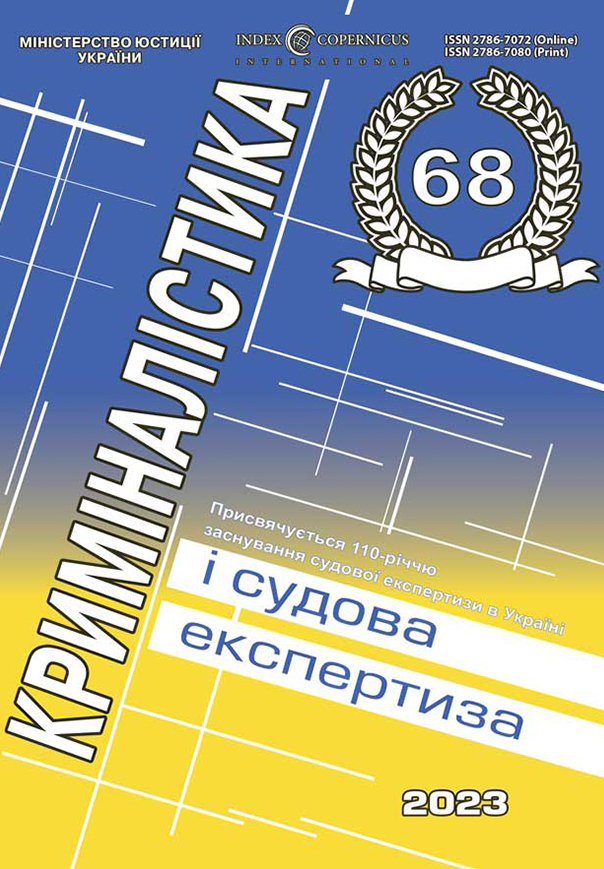
DOI: https://doi.org/10.33994/kndise.2023.68.42
I. Samoilenko, V. Lysenko
Based on the study of judicial and expert practice, the article identifies typical expert errors when conducting non-identification ballistics research: of a procedural nature (expert going beyond the scope of competence; errors caused by improperly formulated questions to the expert; independent collection of objects and examination materials, etc.); epistemological (incorrect application of logical methods and operations, violation of the logic of substantiation of intermediate and final conclusions; imperfect knowledge of the subject of research); operational (use of outdated methods; violations in the sequence of expert procedures; incorrect use of technical means of research or use of unsuitable means, equipment, etc.; obtaining and using low-quality comparative material).
It was concluded that proper operational control of the entire technological chain, starting from the appointment of an expert and the sending of an examination from an expert institution, will also contribute to the reduction of the described shortcomings when conducting non-identification ballistics research. It is emphasized that under such conditions, the departmental control of the head of the expert institution becomes especially important, a thorough check of the validity, reliability and scientific validity of the relevant research will contribute to the reduction of identified and potential errors of subordinate ballistic experts.
It was established that the process of evaluating the conclusion of forensic ballistics examinations, in which diagnostic and situational tasks are solved, includes the analysis of its legal and factual aspects. The assessment of such studies from a legal point of view requires the analysis of the procedural order of preparation, appointment and examination. The evaluation of the factual side of the conclusion consists in establishing the reliability and scientific validity of the factual data discovered by the expert, their relationship and attitude to the event under investigation.
Key words: evidence evaluation, firearms, non-identifying ballistics, pretrial investigation, expert, error.










